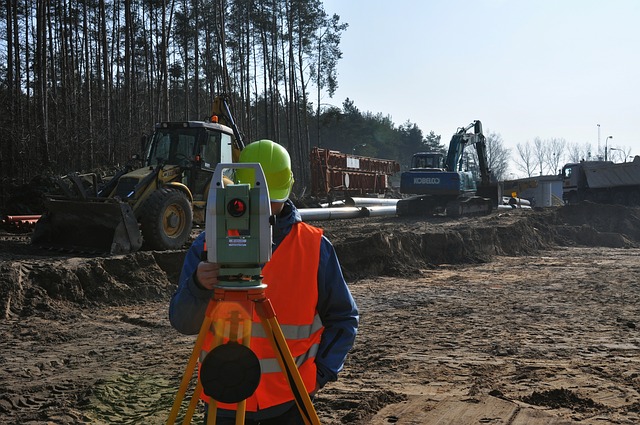Property surveyor v land surveyor
See also: The career of a land or building surveyor.
If you are buying a new property as a home or for your business then you might have been told by concerned parties to use a surveyor, but what precisely does this mean and why should you use them?
First of all, you need to recognise that there is more than one type of surveyor. On the one hand you have property surveyors, and on the other hand you have land surveyors. In many cases property surveyors will be the ones you are more likely to be familiar with, and their job is perhaps the simplest to understand. Essentially, the job of a property surveyor is to check your property before you buy it. This way you will be assured that you are making a good investment and that the property you are going to be moving into is in good condition, safe, and isn't going to fall apart.
A property surveyor will look at things like; the structural integrity of the house, its records, the heating and water supply, any mould or leaks and so on. They can also help you to find out about fault lines or flood planes that might affect your home. By using such a surveyor, you can purchase your new home without having to worry about it being impossible to sell on when you come to move. Bearing in mind how much money you part with when you buy your home, this is a very worthwhile investment. Even if you do still decide to buy, the information garnered from your surveyor can make a useful bargaining position which you can use to drive the price of the property down.
Land surveyors are a little more difficult to understand and fewer people are familiar with them. Essentially, land surveyors will look not at the property itself, but rather at the land it's on, and this is generally not so they can look for potential problems with the property, but rather so that they can identify precisely what the boundaries of your real estate will be.
In other words, when you buy a property you will not just be getting the area surrounded by the fence necessarily, but might also be getting more if the fence has moved over time due to erosion/vandalism/natural wear and tear, or if the fence was placed incorrectly in the first place. If you are thinking of selling your property then this can of course help you to potentially get a better price for it, whereas if you have just bought a property then it is of course prudent to know precisely what you own or what you are getting if you are about to buy.
https://www.modricsurveying.co.uk/
[edit] Related articles on Designing Buildings Wiki
Featured articles and news
Call for greater recognition of professional standards
Chartered bodies representing more than 1.5 million individuals have written to the UK Government.
Cutting carbon, cost and risk in estate management
Lessons from Cardiff Met’s “Halve the Half” initiative.
Inspiring the next generation to fulfil an electrified future
Technical Manager at ECA on the importance of engagement between industry and education.
Repairing historic stone and slate roofs
The need for a code of practice and technical advice note.
Environmental compliance; a checklist for 2026
Legislative changes, policy shifts, phased rollouts, and compliance updates to be aware of.
UKCW London to tackle sector’s most pressing issues
AI and skills development, ecology and the environment, policy and planning and more.
Managing building safety risks
Across an existing residential portfolio; a client's perspective.
ECA support for Gate Safe’s Safe School Gates Campaign.
Core construction skills explained
Preparing for a career in construction.
Retrofitting for resilience with the Leicester Resilience Hub
Community-serving facilities, enhanced as support and essential services for climate-related disruptions.
Some of the articles relating to water, here to browse. Any missing?
Recognisable Gothic characters, designed to dramatically spout water away from buildings.
A case study and a warning to would-be developers
Creating four dwellings... after half a century of doing this job, why, oh why, is it so difficult?
Reform of the fire engineering profession
Fire Engineers Advisory Panel: Authoritative Statement, reactions and next steps.
Restoration and renewal of the Palace of Westminster
A complex project of cultural significance from full decant to EMI, opportunities and a potential a way forward.
Apprenticeships and the responsibility we share
Perspectives from the CIOB President as National Apprentice Week comes to a close.






















